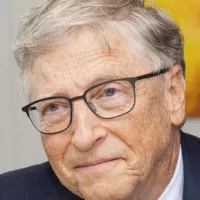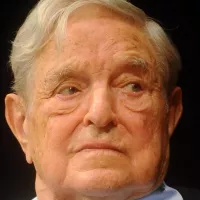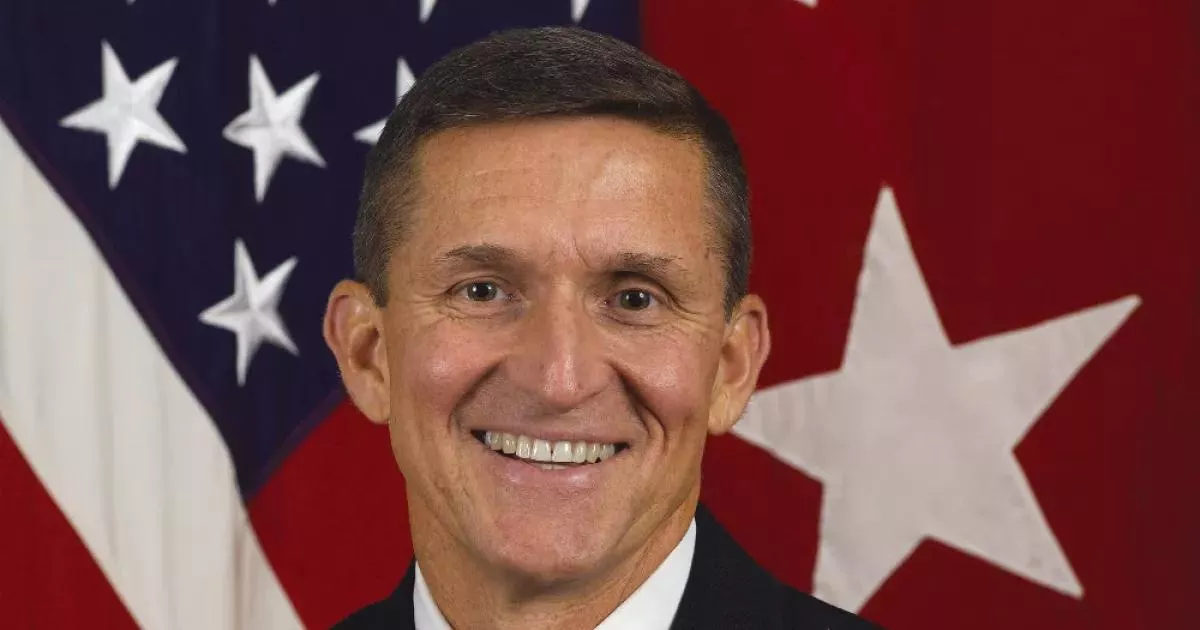Michael Thomas Flynn, a retired United States Army lieutenant general, served as the 24th U.S. national security advisor for a brief period under the Trump administration. His resignation followed allegations of misleading statements about his communications with Sergey Kislyak, the Russian ambassador to the U.S. Flynn's military career was marked by significant contributions to counterterrorism strategies and dismantling insurgent groups in Afghanistan and Iraq. He held various intelligence positions and later became the director of the Defense Intelligence Agency. Notably, he delivered a lecture at the GRU headquarters in Moscow, becoming the first American official granted access to the facility.
December 24, 1958: Birth of Michael Flynn
Michael Thomas Flynn was born on December 24, 1958.
July 24, 1972: Act of Heroism
On July 24, 1972, Michael Flynn and a friend saved two toddlers from an oncoming car that had its parking brake accidentally released. He was honored by the local town council for this act.
1981: Graduation from the University of Rhode Island
Michael Flynn graduated with a Bachelor of Science degree in management science from the University of Rhode Island in 1981. He was a Distinguished Military Graduate of the Reserve Officers' Training Corps (ROTC).
1981: Flynn Marries Lori Andrade
Michael Flynn married Lori Andrade in 1981.
1981: Commissioned as Second Lieutenant in the U.S. Army
Michael Flynn was commissioned as a second lieutenant in military intelligence in the U.S. Army in 1981.
1983: Heroic Act in Grenada
While serving in Grenada in 1983, Michael Flynn jumped off a cliff to rescue two soldiers stranded in the ocean. Though reprimanded for his unauthorized actions, he earned the respect of his fellow soldiers.
June 2001: Assistant Chief of Staff, G2, XVIII Airborne Corps
In June 2001, Flynn began serving as the assistant chief of staff, G2, XVIII Airborne Corps at Fort Bragg, North Carolina.
June 2002: Commander, 111th Military Intelligence Brigade
From June 2002, Flynn commanded the 111th Military Intelligence Brigade.
July 2002: Director of Intelligence, Joint Task Force 180
Flynn served as the director of intelligence at the Joint Task Force 180 in Afghanistan until July 2002.
June 2004: Director of Intelligence, Joint Special Operations Command
In June 2004, Flynn became the director of intelligence for Joint Special Operations Command.
June 2007: Director of Intelligence, United States Central Command
Flynn began serving as the director of intelligence of the United States Central Command in June 2007.
July 2008: Director of Intelligence, Joint Staff
In July 2008, Flynn took on the role of director of intelligence of the Joint Staff.
June 2009: Director of Intelligence, International Security Assistance Force
Flynn became the director of intelligence of the International Security Assistance Force in Afghanistan in June 2009.
January 2010: Flynn Co-Authors Influential Report on Intelligence Gathering in Afghanistan
In January 2010, Flynn co-authored a significant report titled "Fixing Intel: A Blueprint for Making Intelligence Relevant in Afghanistan." The report advocated for a more open approach to intelligence gathering in Afghanistan, urging agencies to consider information from a wider range of sources, including Afghan civilians and NGOs.
October 2010: Reprimanded for Sharing Classified Information
Flynn's time as director of intelligence for the International Security Assistance Force ended in October 2010. He was reprimanded for sharing classified U.S. intelligence information on the Haqqani network to Pakistani officials in 2009 or 2010.
2010: Flynn's Report on Military Intelligence Operations in Afghanistan
In 2010, Flynn authored a report critiquing military intelligence operations in Afghanistan. Though the documentary "Flynn" claims this report angered his superiors, it was actually well-received and praised by then-Defense Secretary Robert Gates.
September 2011: Assistant Director of National Intelligence
Flynn was promoted to Lieutenant General and assigned as assistant director of national intelligence in the Office of the Director of National Intelligence in September 2011.
April 17, 2012: Nominated as Director of the Defense Intelligence Agency
On April 17, 2012, President Barack Obama nominated Flynn to be the 18th director of the Defense Intelligence Agency.
July 2012: Assumed Command of the DIA
Flynn took command of the DIA in July 2012. He simultaneously became commander of the Joint Functional Component Command for Intelligence, Surveillance and Reconnaissance, and chair of the Military Intelligence Board.
July 2012: Appointment as Director of the Defense Intelligence Agency
In July 2012, Michael Flynn was appointed as the 18th director of the Defense Intelligence Agency.
October 2012: "VISION2020: Accelerating Change Through Integration"
In October 2012, Flynn announced plans to release his paper "VISION2020: Accelerating Change Through Integration", which outlined changes he believed were necessary for the DIA in the future.
June 2013: Visit to GRU Headquarters
In June 2013, Flynn became the first U.S. officer allowed inside the Russian military intelligence (GRU) headquarters in Moscow.
2013: Flynn's History with Russian Ambassador Kislyak
Flynn's interactions with Sergey Kislyak, the Russian ambassador, began in 2013 when Kislyak facilitated Flynn's trip to Moscow for his work with the Defense Intelligence Agency.
February 2014: Encounter with Stefan Halper
Stefan Halper, who worked for three Republican presidents and was a longtime informant for the American intelligence community, had an encounter with Flynn at a London intelligence conference in February 2014. Halper became alarmed by Flynn's close association with a Russian woman, leading a Halper associate to express concerns to American authorities that Flynn may have been compromised by Russian intelligence.
April 30, 2014: Announcement of Retirement
On April 30, 2014, Flynn announced his retirement, effective later that year. This came about a year earlier than he had been scheduled to leave his position. Reports indicated he was effectively forced out of the DIA after clashing with superiors over his management style and vision for the agency.
August 7, 2014: Retirement from the U.S. Army
Flynn retired from the U.S. Army on August 7, 2014, after 33 years of service.
August 2014: Forced Retirement from the Military
Michael Flynn was forced to retire from the military in August 2014.
October 2014: Establishment of Flynn Intel Group
After leaving the military, Michael Flynn established the Flynn Intel Group in October 2014, which provided intelligence services for businesses and governments.
2014: Flynn Intel Group Inc. Founded
After retiring from the military, Flynn, along with his son Michael G. Flynn, ran the Flynn Intel Group Inc., which provided intelligence services. The company was founded in the fall of 2014.
2014: Concerns Over Management Style and Views
Colleagues were concerned with Flynn's management style and views about counterterrorism in 2014, and his superiors viewed him as insubordinate. As a result, his two-year term at the DIA was not extended.
2014: Retirement and Criticism of Obama Administration
Following his retirement, Flynn stated he felt like a lone voice in thinking the United States was less safe from the threat of Islamic terrorism in 2014 than it was prior to the September 11 attacks. He believed he was pressed into retirement for questioning the Obama administration's public narrative that al-Qaeda was close to defeat.
June 2015: Flynn Intel Group Inc. Restarted
In June 2015, the Flynn Intel Group Inc. was restarted as a Delaware company.
November 10, 2015: Interview with SIGAR
On November 10, 2015, Flynn participated in an interview with the Special Inspector General for Afghanistan Reconstruction (SIGAR) Lessons Learned project.
December 10, 2015: Flynn Attends RT Gala Dinner in Moscow
On December 10, 2015, Michael Flynn attended a gala dinner hosted by RT (formerly Russia Today) in Moscow. This attendance, where he was a paid guest, would later draw scrutiny due to RT's status as a Russian government-funded media outlet and Flynn's prior role in U.S. intelligence.
December 2015: Paid Speech at RT Anniversary Celebration
In December 2015, Michael Flynn was paid $45,000 to deliver a speech in Moscow at the 10-year anniversary celebration of RT, a state-controlled Russian international television network.
2015: Payments from Russian-Connected Companies
Flynn received more than $65,000 from companies connected to Russia in 2015.
2015: National Defense Authorization Act Restricts Cooperation with Russia
The National Defense Authorization Act of 2015 prohibited military cooperation with Russia without explicit approval from the Secretary of Defense, directly impacting Flynn's later proposal.
February 2016: Flynn Denies Foreign Payments to Defense Department
In February 2016, Michael Flynn told the Defense Department that he hadn't received payments from foreign entities and only had minimal contact with foreign nationals. This statement would later be contradicted by his acceptance of payments for his appearance at the RT gala in Moscow in 2015 and his lobbying work for Turkey.
February 2016: Flynn Becomes Advisor to Trump Campaign
In February 2016, after providing national security advice to various candidates, Michael Flynn formally joined Donald Trump's presidential campaign as an advisor. This marked a significant step in Flynn's political career, transitioning from a military and intelligence background to a more active role in presidential politics.
February 2016: National Security Advisor for Trump Campaign
Michael Flynn served as a national security advisor for Donald Trump's 2016 presidential campaign.
May 2016: Flynn on Targeting Terrorists' Families
In May 2016, Michael Flynn was questioned about Donald Trump's controversial proposal to target the families of suspected terrorists. When asked by an Al Jazeera reporter if he supported such a plan, Flynn responded with caution, stating that he "would have to see the circumstances of that situation." In a separate interview with Al Jazeera, Flynn criticized the United States' heavy reliance on drone strikes, arguing that such actions often exacerbated conflicts rather than resolving them. He expressed concerns that a focus on military solutions without adequate diplomatic efforts would only perpetuate cycles of violence.
July 10, 2016: Flynn Expresses Views on Abortion
During an interview on July 10, 2016, Michael Flynn, when questioned about his stance on abortion, stated that "women have to be able to choose." However, the following day, he clarified on Fox News that he identifies as a "pro-life Democrat."
July 2016: Speech at ACT! for America Meeting
During the 2016 Turkish coup d'état attempt, Flynn spoke at a meeting of ACT! for America. In his speech, he spoke favorably of the coup participants.
July 2016: Flynn Considered as Trump's Running Mate
In July 2016, reports surfaced that Michael Flynn was under consideration as Donald Trump's potential running mate for the vice president position. Flynn later confirmed that he had indeed submitted vetting documents to the Trump campaign and expressed his willingness to accept the Republican nomination, despite being a registered Democrat. Ultimately, Trump chose Indiana Governor Mike Pence as his running mate.
August 2016: Flynn's Stance on Torture Techniques
In August 2016, amidst discussions about Donald Trump's potential openness to reinstating banned torture techniques like waterboarding, Michael Flynn expressed his own views. Despite previously opposing such methods, Flynn, in the context of Trump's position, stated that he "would be reluctant to take options off the table." This shift in stance reflected Flynn's alignment with Trump's more hawkish approach to national security.
August 16, 2016: FBI Opens Investigation into Flynn's Ties with Russia
On August 16, 2016, the FBI initiated an investigation into Michael Flynn's potential ties with Russia as part of its broader Crossfire Hurricane investigation. This investigation aimed to ascertain whether Flynn was, knowingly or unknowingly, involved in activities that could constitute a federal crime or pose a threat to U.S. national security.
September 2016: Flynn's Consulting Firm Hired by Inovo BV
In September 2016, Michael Flynn's consulting company was hired by Inovo BV, a firm with connections to Turkish President Recep Tayyip Erdogan. Flynn received $530,000 for his lobbying efforts, which he later acknowledged may have benefited the Turkish government.
September 2016: Alleged Meeting with Turkish Officials
In September 2016, while working for the Trump campaign, Michael Flynn allegedly attended a meeting with Turkish officials, including Mevlüt Çavuşoğlu and Berat Albayrak. The meeting, as described by former CIA Director James Woolsey, involved discussions about extraditing Fethullah Gülen to Turkey through potentially illegal means.
November 8, 2016: Flynn's Op-Ed in The Hill
On November 8, 2016, coinciding with the U.S. election day, The Hill published an op-ed penned by Michael Flynn. In it, he advocated for U.S. support of Erdogan's government in Turkey and criticized Fethullah Gülen, alleging Gülen's leadership of a "dangerous sleeper terror network." This op-ed drew significant scrutiny as Flynn failed to disclose his firm's financial ties to the Turkish government at the time of writing.
November 2016: Completion of Lobbying Work for Inovo BV
By November 2016, Michael Flynn had completed his lobbying work for Inovo BV, a company with links to the Turkish government. This work, for which he received $530,000, would later become a subject of controversy due to his delayed registration as a foreign agent.
November 18, 2016: Flynn Accepts National Security Advisor Position
On November 18, 2016, Michael Flynn accepted Donald Trump's offer to become the National Security Advisor.
November 30, 2016: Flynn Attends Meeting with Kushner and Kislyak
On November 30, 2016, Flynn participated in a meeting with Jared Kushner, Trump's son-in-law and advisor, and Kislyak at Trump Tower. This meeting, where Kislyak proposed discussing American policy in Syria with the Trump transition team, was intercepted by U.S. intelligence agencies.
December 2016: FBI Interviews Flynn About UN Resolution
In December 2016, FBI agents interviewed Flynn about his conversations with Kislyak regarding a UN resolution on Israeli settlements. Flynn claimed he hadn't attempted to influence Russia's vote but later admitted to asking Russia to oppose or delay the resolution.
December 2016: Flynn Meets with Austrian Far-Right Leader
Michael Flynn met with Heinz-Christian Strache, leader of the right-wing populist Freedom Party of Austria, at Trump Tower in New York in December 2016.
December 29, 2016: Flynn Admits to Lying About Request to Russia
As part of his guilty plea, Flynn confessed to lying about asking Russia's ambassador to refrain from escalating tensions following U.S. sanctions imposed on December 29, 2016.
2016: Flynn Delivers Speech at Republican National Convention
During the 2016 Republican National Convention, Michael Flynn took the stage as one of the keynote speakers on the opening night. His speech, described as "fiery" by the Los Angeles Times, heavily criticized the Obama administration's foreign policy, accusing it of weakening America's global standing and mismanaging conflicts like those involving Osama bin Laden and ISIS. Flynn's address, which included chants of "U-S-A! U-S-A!" with the audience, solidified his image as a strong critic of the Obama administration and a staunch supporter of Trump's vision for America.
2016: Flynn Promotes IP3 International's Nuclear Technology Transfer Plan
During the 2016 presidential campaign and afterward, Michael Flynn, along with Jared Kushner, actively promoted IP3 International's plan to transfer nuclear technology from the United States to Saudi Arabia. This proposal, intended for a potential joint project involving the U.S., France, Russia, and Britain, raised concerns about potential legal violations and sparked controversy due to the implications of sharing sensitive nuclear technology.
2016: Flynn Co-Authors "The Field of Fight: How We Can Win the Global War Against Radical Islam and Its Allies"
Flynn co-authored the book "The Field of Fight" with Michael Ledeen, published in 2016. The book presents a complex worldview, blending neoconservative and realist approaches to combating radical Islam.
2016: Flynn's Identity Unmasked in Intelligence Reports
Flynn's conversations with Kislyak were monitored as part of routine surveillance. While his identity was initially masked, it was later unmasked due to concerns over the content of the conversations. This unmasking became a point of contention and fueled allegations of political spying.
2016: Flynn's Firm's Connection to Turkish Businessman
In 2016, Flynn's firm received payments exceeding $500,000 from Inovo, a company owned by Turkish businessman Kamil Ekim Alptekin, for work that involved investigating Gülen.
2016: Flynn Refers to Trump Supporters as "Army of Digital Soldiers"
In 2016, Michael Flynn used the phrase "army of digital soldiers" to describe supporters of Donald Trump, a term that later became associated with online political activism.
2016: Flynn Raises Concerns about Islamic Extremism and Border Security
In 2016, Michael Flynn voiced concerns about Islamic extremism, suggesting a need for vetting individuals from certain countries. He also claimed to have seen signs in Arabic at the U.S.-Mexico border, implying assistance for illegal immigration, which the National Border Patrol Council could not confirm but expressed worries about terrorism risks at the border.
2016: Flynn Considered as Trump's Running Mate, Addresses Political Affiliation
In 2016, amid rumors about potentially becoming Donald Trump's running mate, Michael Flynn acknowledged his registration as a Democrat but highlighted his belief that the current Democratic Party diverged from his upbringing. He refrained from confirming any change in his political affiliation. Additionally, he served as a prominent speaker during the opening night of the 2016 Republican National Convention and became a notable surrogate and top national security adviser to President Trump.
2016: Media Criticism of Flynn's Alleged Ties and Actions
In 2016, media outlets, including The Washington Post and Associated Press, criticized Flynn for his alleged close relations with Russia and his promotion of anti-Clinton conspiracy theories and fake news during the presidential campaign.
2016: Obama Announces Retaliation for Russian Interference
In response to Russian interference in the 2016 election, President Obama announced retaliatory measures, including expelling Russian agents. Concerned about damaging relations, Trump's transition team, including Flynn, urged Russia not to escalate the situation.
January 4, 2017: Flynn Informs Transition Team of Investigation
On January 4, 2017, Flynn informed Trump's transition team counsel, Don McGahn, that he was under federal investigation for secret lobbying work he did for Turkey during the campaign.
January 2017: FBI Investigates Flynn's Contact with Kislyak
FBI Director James Comey authorized an investigation into Flynn's contact with Kislyak, suspecting Flynn might be under Russian influence after he allegedly misled the Vice President and other officials about his conversations with the ambassador.
January 2017: FBI Interview
In January 2017, Michael Flynn was interviewed by the FBI. This interview later became a point of contention in the case against him.
January 22, 2017: Sworn in as National Security Advisor
On January 22, 2017, Michael Flynn was sworn in as the National Security Advisor.
January 24, 2017: Flynn Interviewed by the FBI
On January 24, 2017, Flynn was interviewed by the FBI at the White House. His legal team would later allege that he was tricked into making false statements during this interview.
February 1, 2017: House Committees Request Investigation into Flynn's RT Ties
On February 1, 2017, ranking Democratic members of six House committees sent a letter to Secretary of Defense James Mattis. The letter requested an official investigation by the Department of Defense into Michael Flynn's connections to RT, specifically his acceptance of money from the Russian state-funded media outlet, raising concerns about potential violations of the Foreign Emoluments Clause.
February 9, 2017: The Washington Post Breaks Story About Flynn's Discussions with Kislyak
On February 9, 2017, The Washington Post reported that Flynn had discussed U.S. sanctions with Kislyak, contradicting the Trump administration's denials. The New York Times confirmed the story, and it was also reported that Flynn had denied these discussions despite being informed that officials had intercepts of his calls.
February 13, 2017: Resignation as National Security Advisor
Michael Flynn resigned as National Security Advisor on February 13, 2017, following reports that he misled Vice President Mike Pence and others about his conversations with Russian ambassador Sergey Kislyak.
February 14, 2017: Trump's Conversation with Comey Regarding Flynn Investigation
On February 14, 2017, President Trump reportedly asked FBI Director James Comey to drop the investigation into Flynn, referring to him as "a good guy." This conversation sparked public debate about its propriety and legality.
February 2017: Flynn's Role in "Ukraine Peace Plan"
Flynn played a key role in the unofficial "Ukraine peace plan", which aimed to lift sanctions on Russia. The plan, orchestrated by individuals close to Putin, was intended to be presented to Trump. Flynn received the plan shortly before his resignation.
February 2017: Flynn Criticizes Obama Administration's Foreign Policy
In February 2017, Michael Flynn critiqued the Obama administration's foreign policy, arguing that it hadn't effectively addressed Iran's actions, including arms transfers, terrorism support, and violations of global norms. He also labeled Yemen's Houthi rebels as one of Iran's "proxy terrorist groups."
March 8, 2017: Flynn Registers as Foreign Agent
On March 8, 2017, Michael Flynn officially registered as a foreign agent with the Justice Department. This registration was for his lobbying work conducted for Inovo BV, a company linked to the Turkish government, until November 2016.
March 2017: Registration as a Foreign Agent
In March 2017, Michael Flynn retroactively registered as a foreign agent, acknowledging his paid lobbying work that potentially benefited the Turkish government in 2016.
March 24, 2017: Woolsey Alleges Flynn Discussed Abducting Gülen
On March 24, 2017, former CIA Director James Woolsey alleged that Michael Flynn, during his time on the Trump campaign in September 2016, attended a meeting with Turkish officials. Woolsey claimed that during this meeting, Flynn discussed the possibility of abducting Fethullah Gülen and extraditing him to Turkey without following standard U.S. legal processes.
April 2017: Defense Department Opens Investigation into Flynn
In April 2017, the Department of Defense, under the direction of then-acting Inspector General Glenn A. Fine, initiated an investigation into Michael Flynn's foreign contacts and compliance with regulations regarding foreign payments. This investigation was prompted by concerns raised by members of Congress about Flynn's potential violations of the Foreign Emoluments Clause.
July 2017: Flynn's Proposal for Military Communication with Russia
The Daily Beast reported in July 2017 that Flynn, while serving as National Security Advisor, had pushed for a direct military communication line with Russia to avoid conflicts in Syria and potentially collaborate against ISIS. This proposal was rejected by the Department of Defense and U.S. Central Command due to legal restrictions.
November 5, 2017: Reports of Evidence Against Flynn and Investigation into Potential Kidnapping Plot
On November 5, 2017, NBC News reported that Robert Mueller had gathered sufficient evidence to press charges against Flynn and his son. It was also reported that Mueller was investigating Flynn's alleged involvement in a plot to kidnap and extradite Turkish cleric Fethullah Gülen.
November 2017: Voicemail from Trump's Counsel
In November 2017, Flynn's attorneys received a voicemail from John Dowd, Trump's personal counsel, which raised concerns about potential implications for the President.
November 23, 2017: Flynn's Lawyers Cease Discussions with Trump's Legal Team
On November 23, 2017, Flynn's attorneys informed Trump's legal team that they would no longer engage in discussions related to Mueller's investigation. This move suggested potential cooperation or plea negotiations between Flynn and prosecutors.
December 1, 2017: Flynn Agrees to Plea Bargain with Robert Mueller
On December 1, 2017, Flynn entered into a plea agreement with Special Counsel Robert Mueller, pleading guilty to making false statements to the FBI regarding his conversations with the Russian ambassador.
December 2017: Plea Deal with Special Counsel Robert Mueller
In December 2017, Michael Flynn agreed to plead guilty to a felony count of making false statements to the FBI about his communications with Russian ambassador Sergey Kislyak, as part of a deal with Special Counsel Robert Mueller. He also agreed to cooperate with the Special Counsel's investigation.
December 2017: Trump and Pence State Flynn was Fired for Lying
In December 2017, both President Trump and Vice President Pence publicly stated that Flynn was dismissed from his position due to lying to the FBI and the Vice President about his conversations with Kislyak.
2017: Jensen Appointed US Attorney
Jeffrey Jensen was appointed US Attorney for the Eastern District of Missouri in 2017.
2017: Potential Pardon Discussions
Reports emerged suggesting that discussions about a potential pardon for Flynn took place in 2017.
March 2018: Dowd Denies Pardon Discussions
John Dowd denied reports that he had discussed a presidential pardon for Flynn with his attorneys in 2017, shortly after resigning as Trump's attorney.
July 2018: Director of Global Strategy, Stonington Global LLC
In July 2018, the consulting firm Stonington Global LLC announced that Flynn was joining the firm as its director of global strategy, though Flynn's attorneys disputed this several hours later.
December 4, 2018: Mueller Investigation Recommends Leniency for Flynn
On December 4, 2018, the Mueller investigation filed a sentencing memorandum recommending leniency for Flynn, citing his timely cooperation and assistance with the investigation.
December 11, 2018: Flynn's Attorneys Request Leniency and Allege FBI Entrapment
Flynn's legal team submitted a sentencing memo on December 11, 2018, requesting leniency. They claimed that FBI agents had misled Flynn into making false statements during the January 24, 2017 White House interview.
December 2018: Government Files Sentencing Memo
In December 2018, the government filed a sentencing memo for Michael Flynn, which included redacted information about communications he received.
December 18, 2018: Mueller Rejects Flynn's Claims and Judge Orders Documents
On December 18, 2018, Mueller's team refuted Flynn's allegations of entrapment, stating that Flynn had repeatedly lied about his conversations with Kislyak. Judge Emmet G. Sullivan requested documents related to the FBI interview ahead of Flynn's sentencing.
May 2019: Trump Questions Lack of Information Regarding Flynn Investigation
In May 2019, Trump publicly questioned why he hadn't been told Flynn was under investigation, suggesting he would have removed Flynn from his team had he known.
May 16, 2019: Unredacted Sentencing Memo Released
On May 16, 2019, an unredacted version of a December 2018 government sentencing memo for Flynn revealed communications he had received that could have affected his cooperation with investigators.
June 2019: Flynn Hires Sidney Powell, Bijan Rafiekian Trial Reveals Information
In June 2019, Flynn replaced his legal team with Sidney Powell, known for urging him to retract his guilty plea. The same month, the Bijan Rafiekian trial brought to light that their foreign client was interested in classified US government information regarding Turkish cleric Fethullah Gülen.
June 2019: Dismissal of Attorneys and Retention of Sidney Powell
Michael Flynn dismissed his attorneys and hired Sidney Powell in June 2019. Powell sought Attorney General Bill Barr's assistance in exonerating Flynn.
August 2019: Motion to Hold Prosecutors in Contempt
In August 2019, Flynn's attorneys filed a motion to hold prosecutors in contempt, alleging misconduct and a deliberate attempt to entrap Flynn.
September 2019: Flynn Participates in "Digital Soldiers Conference"
Michael Flynn participated as a speaker at the "Digital Soldiers Conference" in Atlanta in September 2019, alongside other individuals associated with Trump. This conference focused on preparing "patriotic social media warriors" for what was perceived as a looming "digital civil war."
October 2019: Allegations of FBI Orchestrated Ambush-Interview
Flynn's legal team, in October 2019, further alleged that high-ranking FBI officials had orchestrated an ambush interview aimed at trapping Flynn into making false statements.
November 27, 2019: Flynn's Sentencing Deferred
Flynn's sentencing was postponed multiple times, including on November 27, 2019, as part of his plea deal negotiations.
December 2019: Horowitz Report Validates FBI's Investigation into Flynn
In December 2019, Justice Department Inspector General Michael Horowitz concluded his review of the FBI's Crossfire Hurricane investigation, which included the probe into Michael Flynn. The report determined that the FBI had sufficient basis to open the investigation into Flynn, citing a "low threshold" for initiating such probes. Importantly, Horowitz found no evidence to support claims that the FBI was politically motivated or biased in its decision to investigate Flynn.
December 16, 2019: Sullivan Rejects Entrapment Claims, Sets Sentencing Date
Judge Sullivan, on December 16, 2019, dismissed allegations of entrapment by the FBI and prosecutorial misconduct, scheduling Flynn's sentencing for January 28, 2020.
January 7, 2020: Prosecutors Recommend Up to Six Months Sentencing
Prosecutors, in a sentencing memo presented on January 7, 2020, recommended a sentence of up to six months for Flynn.
January 2020: Withdrawal of Guilty Plea
In January 2020, two weeks before his scheduled sentencing, Michael Flynn moved to withdraw his guilty plea, alleging government vindictiveness and breach of the plea agreement.
January 28, 2020: Initial Sentencing Date
This was the date initially set for Flynn's sentencing, although it was later postponed.
January 29, 2020: Flynn Files Declaration of Innocence
Flynn submitted a personal declaration to the court on January 29, 2020, asserting his innocence under penalty of perjury and claiming he did not intentionally lie to the FBI.
February 10, 2020: Flynn's Sentencing Further Deferred
Flynn's sentencing was further delayed, including on February 10, 2020, as part of his ongoing plea deal negotiations.
February 2020: Barr Announces Review of Flynn's Case
Attorney General William Barr announced a review of Flynn's case in February 2020, assigning Jeffrey Jensen, the US Attorney for the Eastern District of Missouri, to lead it.
May 7, 2020: Justice Department Moves to Drop Charges
On May 7, 2020, under the direction of Attorney General Bill Barr, the Justice Department filed a motion to drop all charges against Michael Flynn.
May 12, 2020: Judge Sullivan Orders Hold on DOJ's Intent to Drop Charges Against Flynn
On May 12, 2020, Judge Emmet G. Sullivan placed a hold on the Department of Justice's motion to dismiss charges against Michael Flynn, expressing his intent to allow for external review of the case.
May 2020: Investigation into Unmasking of Flynn's Identity
In May 2020, Attorney General Bill Barr appointed John Bash to investigate the unmasking of Flynn's identity in intelligence reports. This followed allegations by Trump and his allies that the Obama administration had spied on them.
May 19, 2020: Flynn Files Emergency Petition for Writ of Mandamus
On May 19, 2020, Michael Flynn filed an Emergency Petition for a Writ of Mandamus in the U.S. Court of Appeals for the District of Columbia Circuit, requesting intervention in the district court's handling of his case.
June 10, 2020: Judge Gleeson Files Amicus Brief Opposing Dismissal of Charges Against Flynn
On June 10, 2020, retired U.S. District Judge John Gleeson submitted his amicus brief, appointed by Judge Sullivan, arguing against the government's motion to dismiss charges against Michael Flynn. Gleeson argued that the government's stated reasons for dismissal were "pretextual" and that there was strong evidence of "gross abuse of prosecutorial power."
June 2020: Judge Sullivan Sets Schedule for Amicus Briefs and Replies in Flynn Case
During June 2020, Judge Sullivan set a timeline for amicus briefs and responses, with various deadlines throughout the month.
July 4, 2020: Oath to QAnon and Suggestions for Overturning Election Results
Michael Flynn pledged an oath to the QAnon conspiracy theory on July 4, 2020, and suggested that President Trump should suspend the Constitution, silence the press, and hold a new election under military authority in an attempt to overturn the 2020 presidential election results.
July 16, 2020: Oral Arguments Scheduled in Flynn Case
Oral arguments regarding the Michael Flynn case were scheduled for July 16, 2020.
August 31, 2020: Appeals Court Denies Request to Dismiss Case Against Flynn
On August 31, 2020, the U.S. Court of Appeals for the District of Columbia Circuit ruled against dismissing the case against Michael Flynn or reassigning it from Judge Sullivan.
September 29, 2020: Oral Arguments in Flynn Case Conducted Remotely
On September 29, 2020, further oral arguments in the Michael Flynn case took place remotely due to the ongoing COVID-19 pandemic.
November 2020: Flynn's Post-Pardon Activities and QAnon Involvement
After receiving a pardon in November 2020, Michael Flynn became more deeply involved with the QAnon conspiracy theory. This included endorsing QAnon merchandise, establishing a media company named "Digital Soldiers," and expressing intentions to launch a news outlet with the same name. His appearances on podcasts favored by QAnon followers fueled speculation among adherents that he would play a significant role in their movement, with some even suggesting he was Q.
November 2020: Trump Pardons Flynn, Pentagon Investigation Resumes
In November 2020, President Trump pardoned Michael Flynn for charges related to lying to the FBI. Following the pardon, the Justice Department informed the Pentagon that its previously stalled investigation into Flynn, which began in April 2017, could resume.
November 25, 2020: Presidential Pardon
Michael Flynn received a presidential pardon from Donald Trump on November 25, 2020.
December 8, 2020: Dismissal of Criminal Case
On December 8, 2020, Judge Emmet Sullivan dismissed the criminal case against Michael Flynn, stating he likely would have denied the Justice Department's motion to drop the case.
December 16, 2020: Draft Executive Order for Military Seizure of Voting Machines
In January 2022, a draft executive order dated December 16, 2020, surfaced, proposing a military seizure of voting machines and the appointment of a special counsel to investigate the 2020 election. This revelation highlighted efforts by then-President Trump and his allies to overturn the election results. The order, though never implemented, aimed to challenge the election outcome.
December 17, 2020: Flynn's Remarks on Martial Law
On December 17, 2020, Michael Flynn made controversial statements during a television interview, downplaying the significance of martial law and falsely claiming it had been imposed 64 times in US history, specifically in relation to electoral issues. In reality, while martial law had been declared 68 times, it was never used to address election disputes as Flynn suggested.
2020: Flynn's Post-Election Activities and Collaborations
After the 2020 election, Michael Flynn engaged in various activities and collaborations aimed at challenging the results. He worked with individuals like Ivan Raiklin, who promoted conspiracy theories, and Seth Keshel, who conducted flawed statistical analyses to support claims of election fraud. Flynn's group held strategy sessions and sought to influence key figures to overturn the election outcome.
2020: Flynn Involved in Events Leading to Georgia Election Investigation
Flynn was involved in events related to the 2020 election that led to a grand jury investigation in Georgia.
2020: Flynn's Involvement in Post-Election Efforts
Following the 2020 election, Michael Flynn became deeply involved in efforts to overturn the results. He collaborated with individuals like Phil Waldron, who presented a theory alleging foreign interference in voting machines. Flynn's network urged then-President Trump to take extreme measures, including declaring a national security emergency, to challenge the election outcome.
2020: Flynn's Claims About the 2020 Election
In 2020 and subsequently, Michael Flynn became a vocal proponent of the false narrative that the 2020 presidential election was stolen from Donald Trump. He actively participated in spreading misinformation and conspiracy theories aimed at discrediting the election results.
2020: Flynn Posts Video with QAnon Oath
On Independence Day in 2020, Michael Flynn shared a video of himself leading others in an oath that appeared to align with the QAnon conspiracy theory. While his attorney disputed this connection, many QAnon followers had taken similar oaths using the same hashtag as Flynn.
January 8, 2021: Flynn's Twitter Account Suspension
On January 8, 2021, two days after the attack on the US Capitol, Michael Flynn's Twitter account was permanently suspended. This action was taken alongside the suspension of other accounts associated with QAnon, citing violations of Twitter's policy on Coordinated Harmful Activity.
January 27, 2021: Conclusion of Pentagon Investigation
On January 27, 2021, the Pentagon concluded its investigation into Michael Flynn's foreign contacts and payments. This investigation, initiated in April 2017 but delayed due to the Justice Department's prosecution of Flynn on separate charges, was resumed after Trump pardoned him in November 2020. The findings were submitted to acting Army Secretary John Whitley.
February 2021: Flynn Distances Himself from Some QAnon Views
In February 2021, Michael Flynn attempted to distance himself from certain QAnon beliefs, characterizing rumors of Trump using the Insurrection Act to reclaim control as "nonsense." However, he stopped short of fully disavowing QAnon or acknowledging the legitimacy of Biden's victory.
May 2021: Flynn's Controversial Remarks at QAnon Conference
In May 2021, Michael Flynn sparked outrage with his response to an audience member's question about replicating the Myanmar coup in the United States. His statement, "No reason, I mean, it should happen here," was widely condemned, though he later claimed his words were taken out of context.
May 2021: Flynn's COVID-19 Conspiracy Theories
Throughout 2020 and into May 2021, Michael Flynn actively promoted conspiracy theories related to the COVID-19 pandemic, falsely claiming it was fabricated to influence the 2020 election. He spread misinformation about the vaccine and alleged the involvement of figures like George Soros and Bill Gates in a scheme to control society.
November 2021: Flynn's "One Religion" Remark
During a ReAwaken America event in November 2021, Michael Flynn ignited outrage with his statement advocating for "one religion" in the United States. This declaration was widely condemned for its apparent endorsement of religious intolerance and its contradiction of the country's principle of religious freedom.
November 2021: Flynn Subpoenaed by January 6th Committee
In November 2021, the House Select Committee investigating the January 6th attack on the US Capitol subpoenaed Michael Flynn for testimony and documents. This marked a significant development in the committee's efforts to gather information about the events leading up to and surrounding the attack.
December 2021: Flynn's Role in Spreading Election Misinformation
A December 2021 Reuters investigation revealed the pivotal role Michael Flynn and associated military-intelligence veterans played in disseminating false information about the 2020 election. This network, which included figures like Phil Waldron and Seth Keshel, actively promoted baseless claims of widespread voter fraud and sought to overturn the election results.
December 2021: Leaked Communications Reveal Flynn's Doubts About QAnon
In December 2021, leaked communications between Michael Flynn and lawyer L. Lin Wood, a QAnon supporter, revealed Flynn's private skepticism towards the conspiracy theory. In these exchanges, he characterized QAnon as a "disinformation campaign" orchestrated by either "the Left" or the CIA.
2021: Flynn's Involvement with Nonprofit Organizations
In 2021, Flynn co-founded America Project and took control of America's Future, both conservative nonprofits. These organizations faced scrutiny for their financial dealings with Flynn family members and businesses.
2021: Flynn Moves to Sarasota County and Supports The Hollow
In 2021, Flynn moved to Sarasota County, Florida, and became a financial supporter of The Hollow in Venice, Florida, a known gathering place for far-right groups, including the Proud Boys.
2021: Flynn's Speaking Tour and Controversial Prayer
In 2021, Michael Flynn embarked on speaking tours, including the ReAwaken America Tour, which he helped establish. During one event in September, he delivered a prayer that drew criticism for its similarity to a prayer used by Elizabeth Clare Prophet, the leader of the Church Universal and Triumphant, an organization often labeled as a cult. This further fueled controversy surrounding Flynn's beliefs and associations.
March 2022: Flynn's Appearance Before January 6th Committee
In March 2022, Michael Flynn appeared before the House Select Committee investigating the January 6th attack. However, he repeatedly invoked his Fifth Amendment right against self-incrimination, refusing to answer questions from the committee.
May 2022: Army Seeks Repayment from Flynn for Moscow Speech
In May 2022, the Army officially notified Michael Flynn that it sought to recover over $38,000 from him. This move came after the Pentagon's investigation concluded that Flynn had violated the emoluments clause of the Constitution, which applies to military retirees, by accepting payment for his 2015 speech at the RT gala in Moscow.
May 2022: Bash Investigation Report Released
John Bash's report, previously classified, was released in May 2022. The report concluded that there was no evidence of improper unmasking requests during the 2016 election or the presidential transition.
September 2022: Flynn Joins Sarasota County Republican Committee and Backs Unsuccessful Candidate
In September 2022, Flynn continued his involvement in right-wing politics by joining the Sarasota County Republican Committee in Florida. He also supported an unsuccessful candidate for chair in the committee's December 2022 leadership elections.
December 2022: Flynn Backs Unsuccessful Candidate in Sarasota County Republican Committee Election
In December 2022, Flynn backed an unsuccessful candidate for chair in the Sarasota County, Florida Republican Committee's leadership elections.
December 2022: Flynn Co-Authors "The Citizen's Guide to Fifth Generation Warfare"
In December 2022, Flynn co-authored "The Citizen's Guide to Fifth Generation Warfare," arguing that social media platforms are potent weapons used for manipulation and control by state and non-state actors.
December 2022: Flynn Testifies Before Georgia Election Investigation Grand Jury
In December 2022, Flynn gave testimony under subpoena before a special grand jury in Georgia investigating the 2020 election.
2022: America's Future Financial Struggles and Shift in Focus
In 2022, America's Future experienced significant financial losses, leading to asset sales and reliance on savings. The organization also shifted its focus towards promoting conspiracy theories about child sexual abuse and human trafficking.
March 2023: Flynn Endorses Antisemitic Conspiracy Theory Video
Flynn sparked outrage in March 2023 by endorsing an antisemitic conspiracy theory video.
May 2023: Trump Hints at Potential Role for Flynn in Future Administration
During his 2024 presidential campaign, Trump hinted at a possible role for Flynn in his administration if elected, stating at a ReAwaken America event in May 2023, "We're going to bring you back."
August 2023: Grand Jury Recommends Indictment for Flynn
In August 2023, a grand jury in Georgia investigating the 2020 election recommended that the prosecutor indict Flynn, though she declined to do so.
August 2023: Auschwitz Memorial Condemns Flynn's Remarks
The Auschwitz Memorial condemned Flynn in August 2023 after he made comments suggesting that Jewish parents willingly gave up their children to the Nazis during the Holocaust.
December 2023: Flynn Nominated for Rhode Island Heritage Hall of Fame, Prompting Resignations
Flynn's nomination for the Rhode Island Heritage Hall of Fame in December 2023 was met with controversy, leading to the resignation of several board members in protest.
January 2024: Flynn Appears on Alex Jones Show, Espouses Conspiracy Theories
In January 2024, Flynn appeared on Alex Jones' show, echoing Jones' conspiracy theories and further solidifying his alignment with extremist views.
April 2024: Release of "Flynn" Documentary
The documentary "Flynn," featuring and starring Michael Flynn, premiered in April 2024. The film, characterized as hagiographic, was promoted by Flynn through a multi-city bus tour.
June 2024: The New York Times Reports on Flynn's Post-Government Activities
In June 2024, The New York Times reported that Flynn, along with family members, leveraged his popularity within right-wing groups for financial gain through paid speeches, consulting work, and online merchandise sales.
2024: Trump Hints at Potential Role for Flynn in Future Administration
During his 2024 presidential campaign, Trump hinted at a possible role for Flynn in his administration if elected.
2024: Flynn Nominated for Rhode Island Heritage Hall of Fame
Flynn was nominated for induction into the Rhode Island Heritage Hall of Fame in 2024.
Mentioned in this timeline

Bill Gates an American businessman and philanthropist revolutionized personal computing...

Donald John Trump is an American politician media personality and...

George Soros is a Hungarian-American investor and philanthropist with a...
Fox News Channel FNC is a conservative American news and...

Barack Obama the th U S President - was the...
Ukraine is a country in Eastern Europe the second-largest on...
Trending

29 minutes ago Max Landis Returns to Hollywood with G.I. Joe Movie at Paramount

29 minutes ago Usyk vs. Verhoeven: WBC Title Fight at the Pyramids of Giza

30 minutes ago Tye Kartye placed on waivers by Kraken; Joseph assigned to Springfield.
30 minutes ago Makai Lemon aims Giants youth role, shines at Combine, Jets eyes superstar potential.

30 minutes ago Cerundolo Dominates in Santiago, Continues Golden Swing; Nava Ends American Drought.

1 hour ago Demi Moore debuts dramatic bob haircut at Gucci show, sparking makeover buzz.
Popular

Jesse Jackson is an American civil rights activist politician and...

Susan Rice is an American diplomat and public official prominent...

Michael Joseph Jackson the King of Pop was a highly...

XXXTentacion born Jahseh Dwayne Ricardo Onfroy was a controversial yet...

Barack Obama the th U S President - was the...

Kashyap Pramod Patel is an American lawyer who became the...
